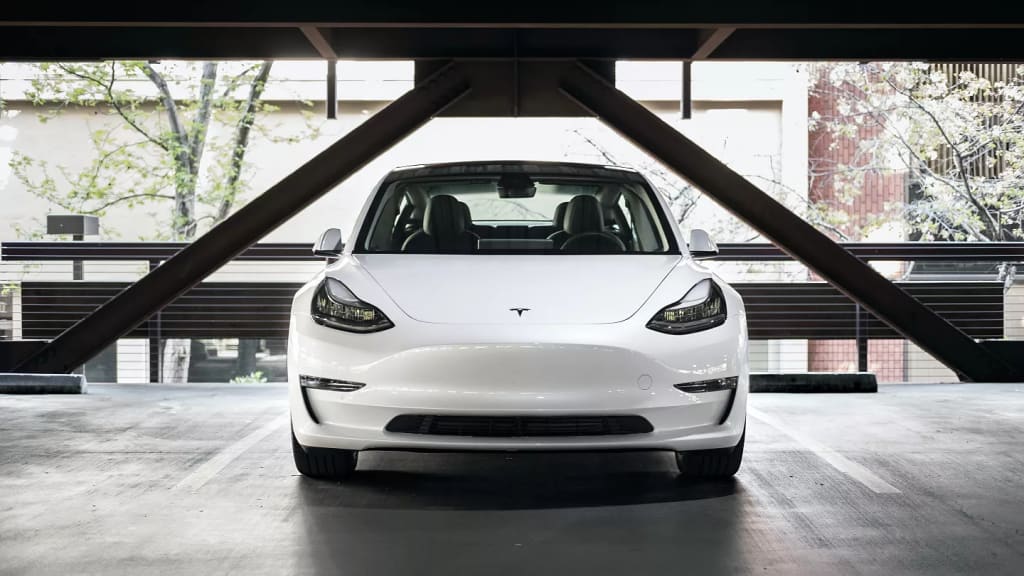
Abstract:
Electric cars have become increasingly popular in recent years as society seeks to reduce its carbon footprint and shift towards renewable energy sources. However, despite advances in electric car technology, challenges remain in terms of their cost, range, and charging infrastructure. This paper will explore the future of electric cars, looking at technological innovations, government policies, and societal trends that are likely to shape the industry in the coming years. We will argue that while there are still significant obstacles to be overcome, the potential benefits of electric cars are too great to ignore.
Introduction:
In recent years, electric cars have emerged as a promising solution to some of the environmental and economic challenges facing the world. Electric cars have the potential to reduce greenhouse gas emissions, lower dependence on fossil fuels, and improve air quality in urban areas. However, the transition to electric cars is not without its challenges. This paper will explore the current state of electric car technology, the challenges that remain, and the potential for electric cars to transform the automotive industry.
Current State of Electric Car Technology:
The technology behind electric cars has come a long way in recent years. Today, electric cars have longer ranges, faster charging times, and improved battery life compared to just a few years ago. For example, the Tesla Model S has a range of over 400 miles on a single charge, while the Chevrolet Bolt can travel up to 259 miles on a single charge. Furthermore, electric car batteries have become more efficient, with some models achieving over 300 miles on a single charge.
However, despite these improvements, electric cars still face significant challenges in terms of their cost and charging infrastructure. Electric cars are still more expensive than their gasoline-powered counterparts, although prices have been steadily decreasing in recent years. In addition, the lack of a comprehensive charging infrastructure means that electric cars are still less convenient than gasoline-powered cars, particularly for long-distance travel. Nonetheless, governments and businesses are investing in the development of charging infrastructure, with the number of public charging stations increasing rapidly in many countries.
Government Policies and Societal Trends:
One of the key drivers of the shift towards electric cars has been government policies aimed at reducing greenhouse gas emissions and promoting renewable energy sources. Many countries have introduced incentives for electric car buyers, such as tax credits and exemptions from tolls and congestion charges. In addition, some governments have introduced mandates requiring automakers to produce a certain percentage of electric or zero-emissions vehicles.
Societal trends have also played a role in the increasing popularity of electric cars. Consumers are becoming more environmentally conscious and are seeking out products that align with their values. In addition, many younger consumers view cars as a means of transportation rather than a status symbol, and are therefore more open to the idea of electric cars.
Future of Electric Cars:
Looking ahead, there are several technological innovations that are likely to shape the future of electric cars. For example, solid-state batteries are being developed that offer faster charging times, longer ranges, and greater safety compared to traditional lithium-ion batteries. In addition, wireless charging technology is being developed that could make charging electric cars as easy as parking them in a designated space.
In terms of government policies, it is likely that more countries will introduce incentives for electric car buyers and mandates for automakers to produce electric or zero-emissions vehicles. In addition, there is growing interest in the potential for electric cars to be used as a grid resource, with their batteries used to store and release energy during times of high demand.
Conclusion:
Electric cars have the potential to transform the automotive industry and play a key role in the transition towards a more sustainable future. While challenges remain in terms of their cost and charging infrastructure, the technological innovations, government policies, and societal trends that are driving the shift towards electric cars suggest that they will become an increasingly important part of the transportation landscape in the coming years. In addition, as the cost of battery technology continues to decrease and the range of electric cars continues to improve, it is likely that they will become more accessible to a wider range of consumers.
However, it is important to note that electric cars are not a panacea for all of the environmental and economic challenges facing the world. In order to fully realize their potential, electric cars will need to be part of a broader shift towards renewable energy sources and sustainable transportation systems. This will require significant investments in infrastructure, changes in consumer behavior, and a commitment to long-term planning and policy-making.
In conclusion, while there is still much work to be done, the future of electric cars looks bright. As the technology continues to improve and government policies and societal trends continue to support their adoption, electric cars have the potential to be a key part of the transition towards a more sustainable future. By investing in the development of electric cars and the infrastructure to support them, we can reduce our dependence on fossil fuels, improve air quality, and create a more sustainable and equitable transportation system for future generations.





Comments
There are no comments for this story
Be the first to respond and start the conversation.